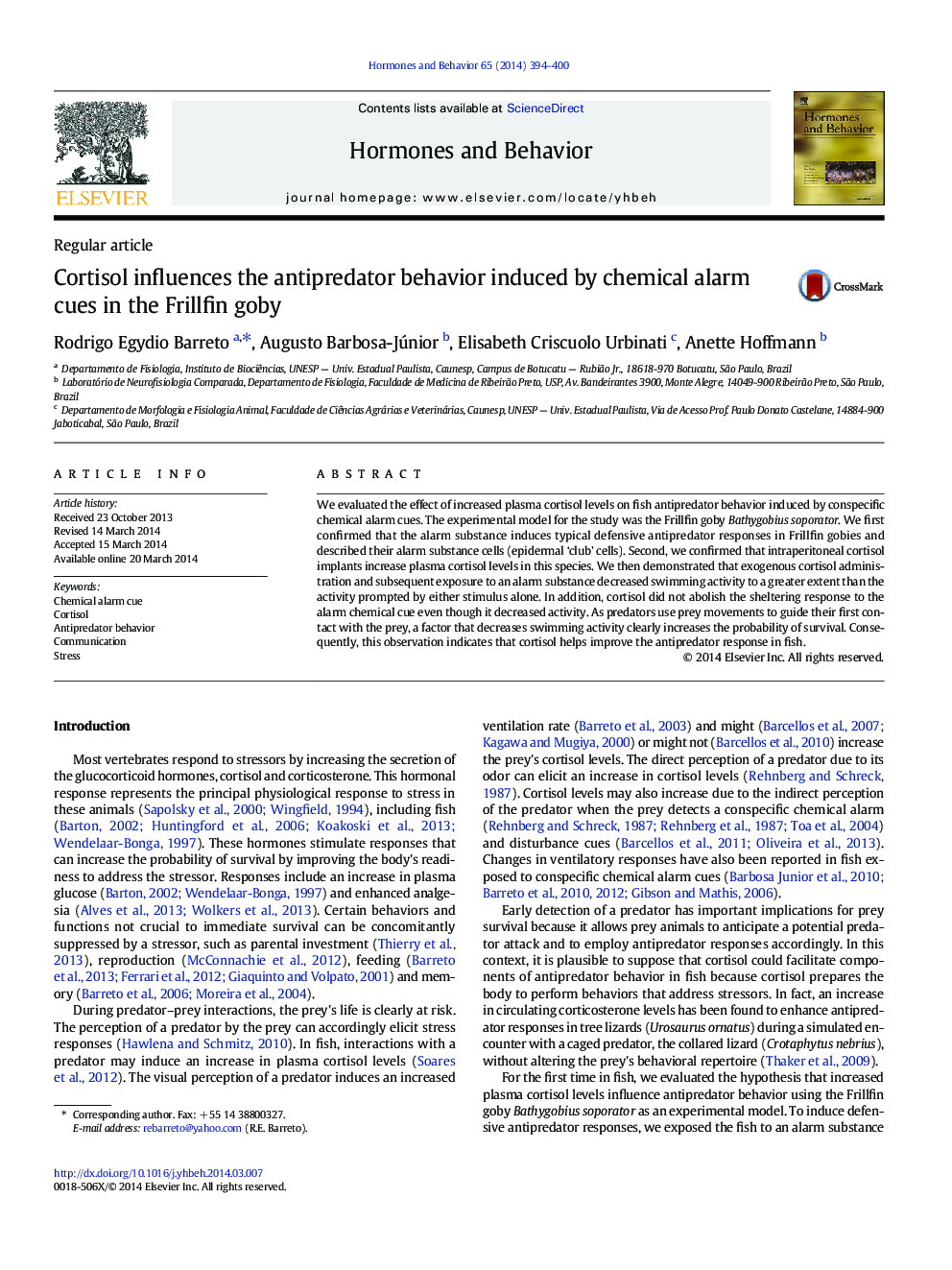| Article ID | Journal | Published Year | Pages | File Type |
|---|---|---|---|---|
| 323420 | Hormones and Behavior | 2014 | 7 Pages |
•The alarm substance induces typical defensive responses in Frillfin gobies.•Cortisol and alarm substance increase concomitantly fish immobility.•Cortisol improves the antipredator response in fish.
We evaluated the effect of increased plasma cortisol levels on fish antipredator behavior induced by conspecific chemical alarm cues. The experimental model for the study was the Frillfin goby Bathygobius soporator. We first confirmed that the alarm substance induces typical defensive antipredator responses in Frillfin gobies and described their alarm substance cells (epidermal ‘club’ cells). Second, we confirmed that intraperitoneal cortisol implants increase plasma cortisol levels in this species. We then demonstrated that exogenous cortisol administration and subsequent exposure to an alarm substance decreased swimming activity to a greater extent than the activity prompted by either stimulus alone. In addition, cortisol did not abolish the sheltering response to the alarm chemical cue even though it decreased activity. As predators use prey movements to guide their first contact with the prey, a factor that decreases swimming activity clearly increases the probability of survival. Consequently, this observation indicates that cortisol helps improve the antipredator response in fish.
